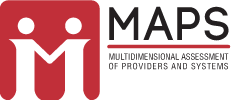Work and Productivity
The work and productivity studies led by the MAPS team focus on how active participation can be enhanced through training and innovative employment programs, and how engagement in productivity options foster social inclusion.
Key Findings
- Analysis of data in the ODSP database revealed that just 17.5% of recipients were working, and there are indications that a portion of those were working at less than minimum wage.
-
- 38% of survey respondents had been employed at minimum wage or better at some time during their lives, but it was revealed through interviews that it many cases, that employment was short lived.
- Individuals residing in rural areas reported significantly lower rates of high school attendance and employment than did other survey respondents
- Females are less likely to achieve paid employment than are males
- The only predictor of paid vs. unpaid employment was the individual’s level of daily functioning as measured by the Scales of Independent Behavior – Revised.
- Many interview respondents reported having had very little choice in job placements while they were in vocational preparation programs, most of the options having been determined by caregivers or teachers.
- Based on our multi-stage study, best practices in moving people with ID forward to productive engagement include:
- Individualized, vocationally-focused high school education
- Vocational training and supports
- A strong match between worker and workplace, whether in paid or unpaid job, and a key facilitator (e.g. teacher, counsellor, employer or parent) to identify and oversee the matching process
Resources
New guidelines available for agencies operating social businesses in the intellectual and developmental disability sector
Current Projects
-
- This 5 year study is funded by Employment and Social Development Canada (ESDC) as part of a suite of projects across Canada. These studies will provide outcome data on persons who participate in social enterprise as an entry point to the labour market.
- Co-investigators are: Kathy Brock, Terry Krupa, and Kelly Packelin, all of Queen’s University; Lori Ross of the University of Toronto; and Michael Roy, of Glasgow Caledonia University.
-
- This study is exploring education on Intellectual and Developmental Disabilities in Canadian Occupational Therapy Curricula. The project will survey occupational therapy education programs across Canada concerning the nature of education provided to students on IDD
- The project is unfunded, and being conducted by occupational therapy students Kathryn Andrusko, Claire Currie, Jessica Leach & Laura O’Donnell under the supervision of Nicole Bobbette and Rosemary Lysaght.
Past Projects
-
- Using data collected by MAPS through a survey sent to 12,000 ODSP recipients across 3 regions of Ontario, this project studied whether there is a link between high school completion and employability of persons with IDD. Preliminary analysis suggests that completion of high school with a regular diploma as opposed to a certificate of accomplishment has a stronger link with obtaining employment at or above minimum wage, but not as strongly as participation in some form of work preparation program. This may be because these programs could be accompanied with placement opportunities whereas high school completion is not. There is virtually no research in the field of economics on the employability of persons with IDD. This research will hopefully create more interest in this field and lead to better outcomes for persons with IDD.
-
- Abstract – Background: In light of the current directives of the Ontario Ministry of Community and Social Services (MCSS) towards providing more inclusive employment opportunities and closure of sheltered workshops, service providers are working to shift their employment services to be more community-based. This study investigated the needs of clients in one community agency, their caregivers, agency staff and administration, regarding the development of a community-based employment program for service users with intellectual and developmental disabilities (IDD). Methods: This qualitative case study used a needs assessment framework based on the model developed by Witkin and Altschuld (1995). Prior the start of the data collection, a pre-assessment was conducted which provided the background and premise for the current assessment. The full needs assessment included four participant groups: agency clients, caregivers, day program staff and senior management. Clients and their caregivers participated in individual, semi structured interviews. Day program staff and senior management participated in separate focus groups. Results/Discussion: This evaluation determined that all stakeholders would like community-based employment services to be offered by the agency, and clients expressed an interest in supported employment services, vocational services and a social enterprise. The results of this assessment also highlight factors that impact stakeholders’ motives for pursuing community based employment services, and the organizational and structural barriers that hinder the agency’s development of such services. Due to the diversity in the clientele, there was ambivalence amongst stakeholders about which type of employment program will best suit service users and the organization overall.
- Rachel Maislin conducted this research for her M.Sc thesis in Rehabilitation Science, under the supervision of Rosemary Lysaght (2015-17).
-
- This project advanced knowledge on education and productivity through examining the impact of disability benefit administration policies on recipient engagement in job seeking across three Canadian provinces. The study resulted in a number of recommendations concerning policy and practice.
- 2014-2016, funded by Social Sciences and Humanities Research Council of Canada
- Principal investigator: Rebecca Gewurtz, Queen’s University
- Co-investigators are: Bonnie Kirsh, University of Toronto, Rosemary Lysaght, Queen’s University & Rob Wilton
-
- (2013-2015), funded by an Ontario Ministry of Community and Social Services, Policy Research and Analysis Branch Research Grant
- Principal Investigator: Rosemary Lysaght, co-principal investigator, Terry Krupa, Queen’s University.
